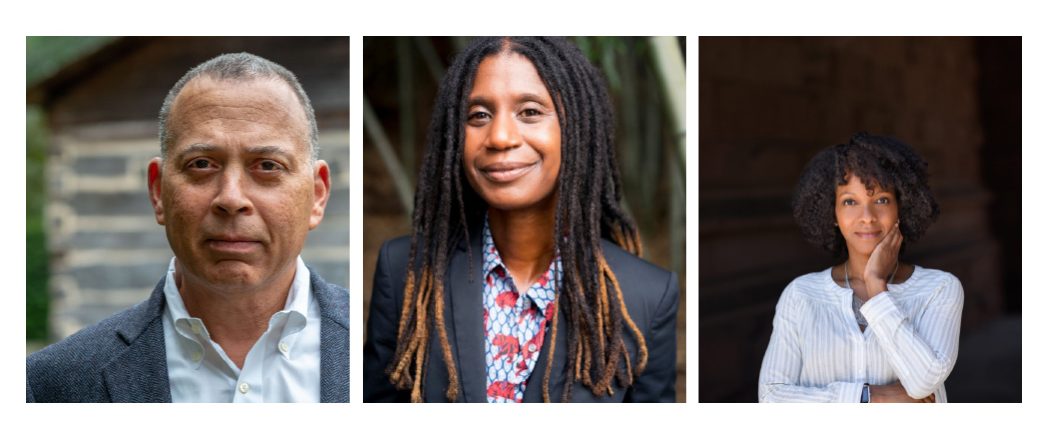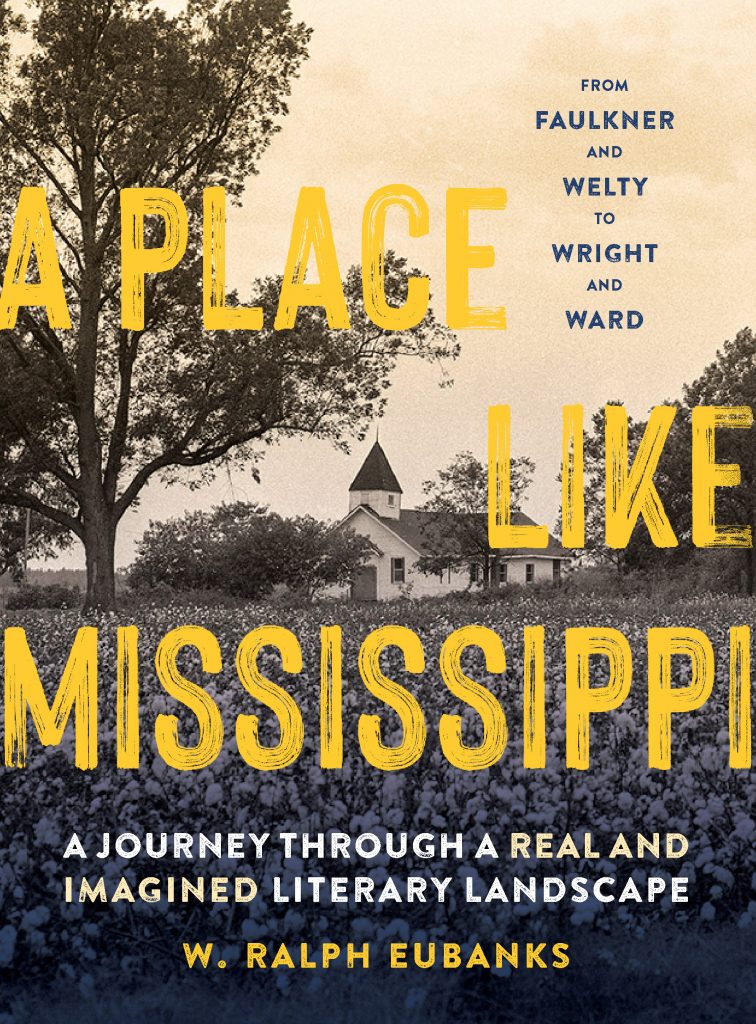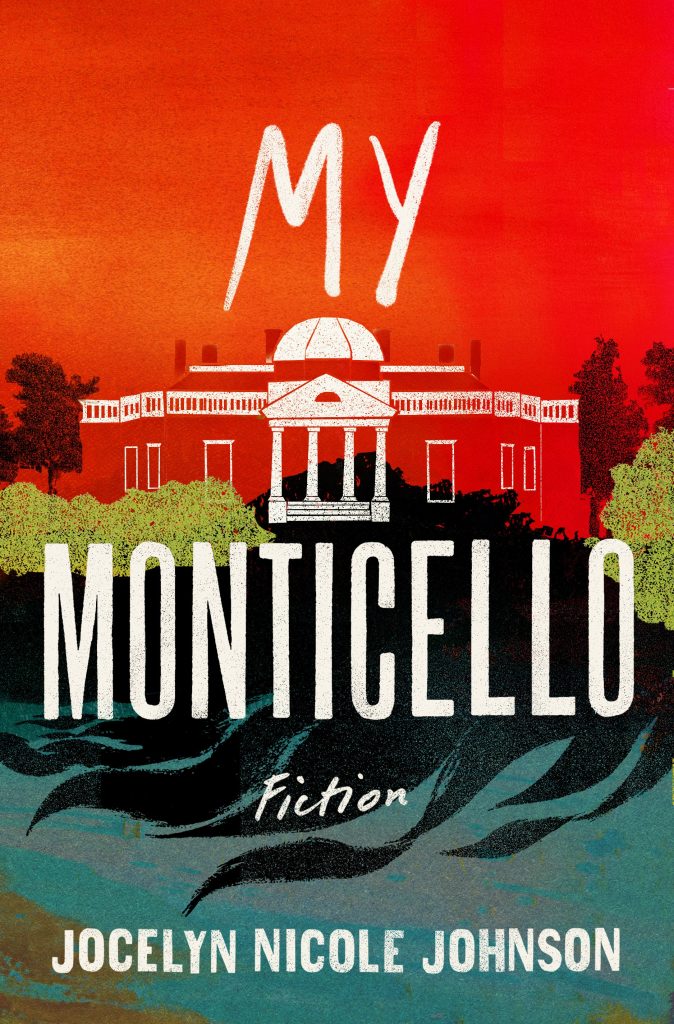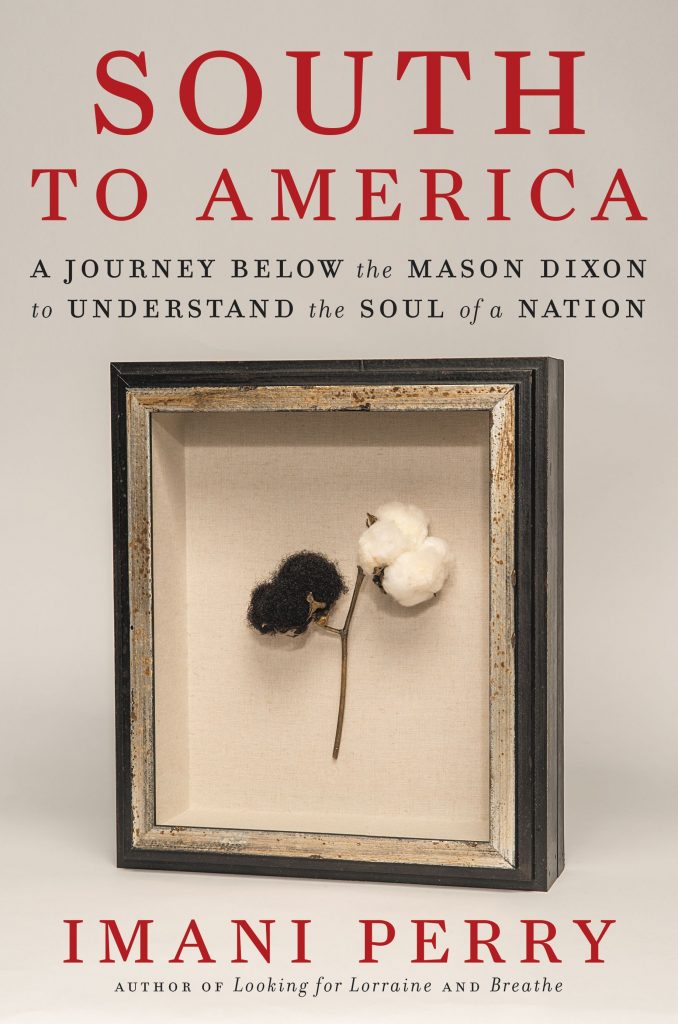Southern landscapes can evoke images of magnolias, Spanish moss, or Billie Holiday’s strange fruit. Those perceptions of the South as a beautiful but benighted part of the country bring three Black writers with deep Southern roots to the Virginia Festival of the Book March 19.
“…[T]his landscape made me a writer,” says Ralph Eubanks in A Place Like Mississippi: A Journey Through a Real and Imagined Literary Landscape, which explores the Magnolia State’s rich legacy of literary greats, from William Faulkner and Eudora Welty to Richard Wright and Jesmyn Ward. “It is the beauty of the land mixed with the state’s complex history that inspires and perplexes its writers,” he says.
Eubanks will be joined by Birmingham-born Imani Perry, professor of African American studies at Princeton. Perry journeyed south to consider the region with fresh eyes in her book, South to America: A Journey Below the Mason-Dixon to Understand the Soul of a Nation.
And panelist Jocelyn Nicole Johnson, a Charlottesville resident, sets her acclaimed short story collection, My Monticello, in a central Virginia landscape very familiar to local residents.
Panel moderator Justin Reid, Virginia Humanities director of community initiatives, notes the panel’s commonalities: “Our experiences being Black in the South, loving a place that doesn’t always love you back, and being protective of it.”
Another theme: that the racism and poverty attributed to the South are symptoms of the entire nation.
Eubanks was born in the Piney Woods coastal plains of Mississippi, and he’s written two memoirs, including Ever Is a Long Time: A Journey Into Mississippi’s Dark Past, which Washington Post critic Jonathan Yardley called one of the best nonfiction books of 2003.
His career spans publishing—the Library of Congress’ director of publishing and a stint as editor of Virginia Quarterly Review—academia, and journalism. He’s currently a fellow at the Radcliffe Institute for Advanced Study at Harvard. And yet, there’s always Mississippi.
“What I realized in returning was how much of my imagination was threaded together in Mississippi, so much so that it affected the way I looked at the entire world,” he writes. The book’s title refers to a quote often attributed to Faulkner: “To understand the world, you must first understand a place like Mississippi.”
His latest book documents the many, many Mississippi writers—far more than you might have realized—and their regions of the state. National Book Award winner Jesmyn Ward describes the Gulf Coast humidity as “a warm embrace,” and says the area “helps me keep a sense of urgency in my work.” She hopes at least one of her children will remain in a place “that I love more than I loathe.”
Perry’s ancestors never left Alabama. She’s a scholar of law, and literary and cultural studies, studied at Yale, Harvard, and Georgetown, grew up in Cambridge and now lives in Philadelphia, but considers Alabama a core part of her identity.
She says the most virulent racism she experienced was in Boston during school busing.
Perry sees the South as scapegoated. “This country was made with the shame of slavery, poverty, and White supremacy blazoned across it as a badge of dishonor. To sustain a heroic self-concept, it has inevitably been deemed necessary to distance ‘America’ from the embarrassment over this truth. And so the South, the seat of race in the United States, was turned on, out, and into this country’s gully,” she writes.
In “My Monticello,” Johnson’s protagonist is a UVA student and descendant of Thomas Jefferson and Sally Hemings who flees violent white supremacists in a JAUNT bus to Monticello. Johnson was in Charlottesville during August 2017, and the novella “absolutely was influenced by August 12,” she says.
Her story “Control Negro” was a reaction to ABC officers slamming a Black UVA student to the ground on the Corner in 2015, an incident that made her realize, “That could be my kid or someone I knew.”
“I think for Charlottesville audiences, there’s a lot that will resonate with what we’re grappling with now—outside perceptions of us and the stories we tell ourselves that don’t exactly align,” says Reid.
Charlottesville’s former mayor Nikuyah Walker and vice-mayor Holly Edwards both have referred to the city as a “beautiful ugly” place, which Reid says is something a lot of Black southerners understand. “I see beauty and ugliness,” says Reid. “It’s not one or the other.”
At this event, that description is not just applicable to the South. “Beautiful ugly” is an American story.



